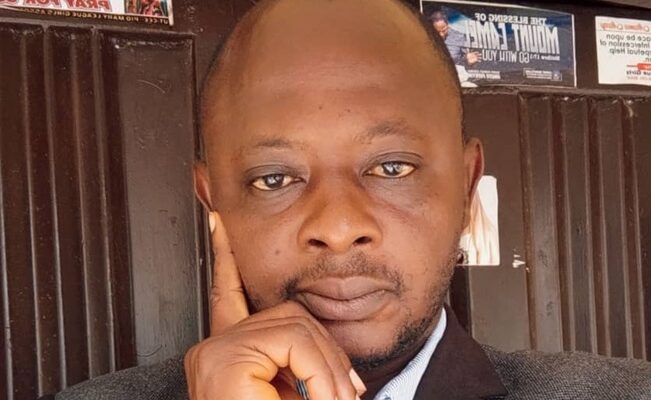When Rev. Isaac Omolehin, one of Nigeria’s longest-serving preachers, thundered from his pulpit, “I pity those who attend churches like Winners, COZA and Christ Embassy,” his words did not fall like casual remarks. They landed like fire on dry grass, setting off a blaze of debate across Nigeria’s already contested religious landscape. In a nation where faith is public currency and pastors rank among the most powerful figures in society, his declaration struck nerves, exposing fractures that have long simmered beneath the glitter of mega-congregations.
For Omolehin, the lament was not a cry of rivalry but a testimony from half a century of ministry. He has preached since 1975, and he framed his critique as one born of heritage and history. He spoke of fathers of faith who, in his eyes, modeled purity, modesty, and discipline. “Those who tutored us gave us matured food. You can’t see them in immorality. We have a goodly heritage,” he told his congregation, insisting that today’s flamboyant leaders have traded depth for display. His fear was not merely for the present but for the future, warning that once the towering figures of today’s megachurches depart the stage, the legacies they leave may be nothing but rubble. “When the founders of those places are gone, the rubbish legacy they laid is what they will be doing,” he declared.
That charge resonates in a country that boasts five of the world’s richest pastors but none of the world’s richest churches, where institutions appear fragile even as individuals flourish. Critics argue that many of the largest congregations are built not on enduring structures but on the charisma of singular leaders. Once succession comes, fractures appear, and what once looked like an empire quickly unravels. Omolehin, in his characteristically sharp language, accused some churches of even mixing faith with fetish practices, mocking pastors for “pocketing feathers of parrot and aluko bird.” His rhetoric may sound extreme, but behind it lies an anxiety about syncretism, worldliness, and the cult of personality that now dominate the airwaves of faith.
The moral dimension of his outcry was equally stark. He contrasted today’s flamboyant “first ladies” of churches with the quiet dignity of the women who stood beside the fathers of his generation. “I never saw the wife of Prophet Obadare. I never saw the wife of Baba Ariye. And you will say you can’t see them all these mothers doing rubbish, shameless adults,” he lamented, pointing to trousers, ostentation, and scandal as evidence of drift. For him, heritage was not nostalgia but an anchor that prevented faith from being swept away by every cultural current.
Observers agree that his concern touches a nerve not just in Nigeria but across the globe. From Ghana to South Africa, from the United States to Brazil, the prosperity gospel and its celebrity-driven megachurches have produced dazzling spectacles and immense followings, yet many collapse after the scandals or deaths of their founders. History is littered with movements that dazzled a generation only to leave ruins for the next. The Bible itself records similar warnings: “Another generation grew up who neither knew the Lord nor what He had done for Israel” (Judges 2:10). Esau traded his birthright for a single meal, despising what was eternal for what was immediate. Omolehin’s voice, however sharp, draws from that ancient well: a warning that faith without foundations cannot endure.
Yet defenders of the churches he rebuked argue otherwise. Younger Christians say innovation is necessary for relevance. A Christ Embassy member in Lagos told the BBC, “The gospel must adapt to reach new generations. Heritage is important, but impact is equally so. My pastor may be flamboyant, but through him I found purpose.” They point to universities, humanitarian programs, and global influence as proof that these churches are building heritage in new ways. Winners Chapel runs universities that shape thousands of graduates, Christ Embassy dominates Christian media, and COZA has drawn crowds of youth searching for belonging. For them, the question is not whether there is heritage, but whether the definition of heritage has shifted.
Still, succession remains the thorn that cannot be ignored. Unlike Catholicism or Anglicanism with their centuries-old hierarchies, Nigerian megachurches are fragile around the question of leadership transition. Once a founder departs, disputes often erupt, congregations splinter, and institutions weaken. Omolehin’s words may have come with pride—“Ask them, what year did you start preaching? I started mine 50 years ago, and we are still counting” —but beneath the pride lies a serious reminder: legacies are tested by time, not applause.
His critics accuse him of being judgmental, but even they cannot deny that his cry reflects an enduring dilemma. Religion in Nigeria is not private; it shapes politics, economics, education, and even international perception. When churches weaken, the tremors reach far beyond their altars. What is at stake is not merely denominational rivalry but the moral and institutional health of a nation. Proverbs 22:28 offers an ancient caution: “Remove not the ancient landmark, which thy fathers have set.” Omolehin’s thunderous cry, for all its bluntness, echoes that warning.
The truth is simple yet sobering: history will not remember how many private jets a pastor flew, nor how many stadiums were filled, but whether the faith they preached outlived them. Nations rise or fall on the strength of their moral anchors. Churches that trade heritage for spectacle may glitter for a season, but when storms come, only those with deep roots survive. Omolehin’s words, though piercing, are not merely a curse on rival congregations but a plea to guard the soul of faith itself.
The call is clear: to build temples of stone, not monuments of sand; to pass to the next generation not scandals and cults of personality, but heritage that will endure. In the end, the measure of a ministry is not the applause it garners in the present, but the testimony it leaves in the future. “We have a goodly heritage,” Omolehin said. The question that remains is whether Nigeria’s churches—and indeed, churches everywhere—will guard that inheritance or squander it.
– Inah Boniface Ocholi writes from Ayah – Igalamela/Odolu LGA, Kogi state.
08152094428 (SMS Only)




